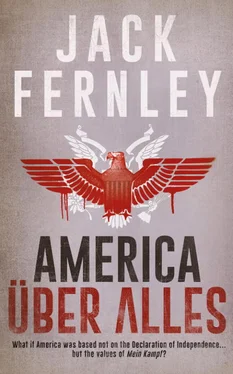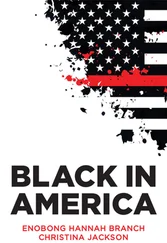General George Washington grimaced in agony. The constant pain from his teeth made him irritable at the best of times, but the events of the previous evening at the tavern had tried his patience beyond reason. It was symbolic of the near disaster he was facing: his army was falling apart. He sensed that on his daily walks around camp: he could hear it in the low murmurs that grew the second he passed; he saw it in the men who avoided eye contact where once they would have raised a ‘Hurrah!’; and he smelled it, that unique smell of defeatism, that was starting to pervade the camp and growing stronger each day.
The evening’s conference with his generals Henry Knox, Hugh Mercer, Horatio Gates and Nathanael Greene had started badly when a messenger had brought news that Charles Lee, supposedly his most senior field officer, had been captured by the enemy in a tavern in Basking Ridge; the victim, it was said, of some contrivance involving the British and a local woman. He smelled a rat. He had endured enough disloyalty from Lee and his friend Gates. Their allegiance to himself was questionable at best. He could ill afford further bad news. And now he had this issue with Hand to deal with.
Washington had come to hold Hand in high regard; he was one of his most trusted men in the field. But now the general had the wrath of the Virginian officers to contend with. It had taken so much energy to bring them into the main body of his army in July. He had pushed his closest friend, Hugh Mercer, to breaking point almost in getting these troops integrated, to ensure the British could not claim the Continental Army was an army only of the northern towns and cities. It was the kind of problem he had foreseen when he had opposed free Negroes fighting in the army. Such conflict was inevitable.
‘Whatever moral impugnation we might share regarding the institution of slavery, has to be set aside against the greater good of maintaining our alliance. Your efforts in killing one of the most regarded southern officers just made that even more difficult to maintain. And if I do not act swiftly and be seen to act appropriately, there is a possibility that our great alliance may fall apart. The Lord knows it is struggling as it is.’
‘Sir, Lieutenant Penny wronged one of the best regarded northerners, someone who has proved himself many times over the last year. It was Penny who started the brawl. There are many who will bear witness to that. His death was an accident. One I obviously regret, but it was an accident, caused by his own reckless behaviour,’ countered Hand.
‘You, sir, were equally as reckless. My understanding is that you were drunk. You have ambitions, sir, to be a true leader of this army, yet you wallow with the lower ranks in the taverns. Drunkenness, the worst vice men can have. A vice no senior officer can partake of. Enough, you know the charge for the murder of a fellow officer?’
‘Murder? It was not murder, General, it was—’
‘Silence! It was murder in my book. You unnecessarily started a brawl with a fellow officer that ended only with his death. It’s murder and the penalty for such a crime is death itself. You’ll be up before court martial at first light.’
‘What?’
‘Sir, may I intercede?’ General Nathanael Greene stepped forward, putting his hand out towards Hand, hoping that would stop the Irishman from saying anything further.
‘What Hand did was unacceptable, and I understand only too well the strains that it will put upon on us as we look to hold this fragile coalition of interests together, especially given the unfortunate events of these past months, yet—’ Washington now raised his hand in dispute, but Greene continued, ‘This is a man who you and I have come to respect and depend upon. We have few such characters around us at this moment in time. At Boston and Bunker Hill and on the retreat from New Jersey, this is a man who has fought with pride. This is also – and I freely admit to appealing to the sentimental aspects of your character – a man who lost his wife and unborn son just a few months past and yet is still within our camp. That is testament both to his loyalty to the cause and to the sacrifice he has endured.’
‘Greene, I know of this. You are the most humane of men. The individual pain of such circumstances is something that I would expect all of us to bear with heavy fortitude and deep sadness, yet it does not excuse his behaviour and the problem he has presented us with. We run the risk of our army being reduced still further to a rump. I cannot lose the southerners.’
‘And what a rump it will be if we keep the few southerners who would leave and lose the large numbers of northerners who would flee the camp if you follow through on this penalty,’ Mercer pointed out.
‘What do you mean?’
Mercer continued: ‘Our Colonel Hand here: do not underestimate his popularity, not just with the Pennsylvanians, but with the greater body of our men. They are itching for an excuse to leave the camp, to return to their farms, their families. There is but a week or so before most of them are free of the bond created by their annual enlistment. We need them to sign up again, not to flee the camp. Put Hand under court martial, even worse on the gibbet, and you may face an empty camp. Frankly, the northerners from our towns and cities are far more valuable to our cause that those from the plantations. It is those militia who remain loyal and firm. Do not give them cause to think otherwise.’
Mercer moved closer to Washington. He placed his hand on the general’s shoulder, a degree of intimacy that no others in the room could share, an intimacy born almost twenty years earlier when they had both served the British at the siege of Fort Duquesne. In almost a whisper, certainly in a pitch none but the general could hear, Mercer said:
‘George, Nathanael is correct. And there is your own personal reputation to consider. You know there are, even within this room and our closed ranks, those who argue that you have failed to lead this war competently. Do not give them an excuse to seed further discord. For they will seize such an opportunity and we will all be damned. A house divided falls. Do not be the architect of your own division. By all means we should punish the man, but do not make him a martyr to provide excuses for others to desert our cause.’
With that he pulled back to stand with the ranks of the other generals, and then said loudly:
‘We have need to dispatch a proper person over the river to make the necessary enquiries of Trenton and its surrounds. What guards are posted upon the different roads leading into the town, the number on the mill bridge, where the enemy’s cannon lay and their number. Indeed, to ascertain the number of enemy forces in Trenton, whether reinforcements have latterly arrived or indeed marched out of the town, where they lay and the general defences that have been established. This and other intelligence we have failed to procure in the necessary detail. Despite the efforts of those brave souls who have perished attempting to do so.
‘For that, knowledge of the town would improve our chances of good fortune and Hand here has knowledge of the town. Did you not practise in Trenton before joining the cause?’
‘I did, sir. I practised as a surgeon in the town for a period of time. Myself and O’Leary continued to live there until my family were…’ His words trailed off. The memory of Catherine, barely a year earlier, her face so radiant, a wide-open smile, kneeling before him, telling him she was carrying their child.
Mercer, embarrassed on Hand’s behalf, continued: ‘I would respectfully suggest that, as a consequence of his unfathomable actions of the night last, Hand be stripped of his rank of lieutenant colonel, and be sent to scout the town and its surrounds. The knowledge he returns with can be used to ascertain whether the policy you so recently brought to this table should be acted upon. There is, of course, not an insignificant amount of risk attached to such an assignment.’
Читать дальше












